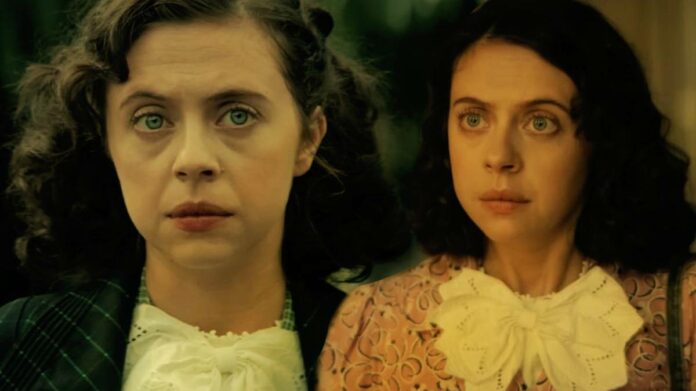Miep Gies stood out as a symbol of courage, resilience, and compassion in the National Geographic production A Small Light. Miep Gies, a real-life figure, played a pivotal role in sheltering Anne Frank’s family during the horrors of the Holocaust. Her undying determination and selflessness were masterfully portrayed in the series, leading the audience to fall in love with her character. Portrayed by Bel Powley, Miep Gies was initially introduced as a vibrant and spirited young woman seeking employment to avoid the societal pressure of marriage. Her rebellious nature shone through as she challenged traditional expectations. When she was hired by Otto Frank to work at his pectin company, Opekta, her professionalism was evident, but it was her deep bond and friendship with the Frank family that truly stood out. This connection served as the cornerstone of her commitment to safeguard and support them despite the dreadful situation of war.
Born in Vienna, Austria, in 1909, Miep Gies experienced a difficult childhood. At a tender age, Miep experienced a heartbreaking separation from her mother as she was sent to Amsterdam. This early separation left an indelible emotional scar on young Miep, but it also imparted crucial lessons in endurance and self-reliance. Adopted by a compassionate family in Amsterdam, Miep found solace in their care and support. They provided her with the vital necessities of life, including food and medical care, nurturing her physical and emotional well-being. This loving environment played a crucial role in Miep’s development, instilling in her a deep appreciation for love and kindness. While Miep carried the pain of being separated from her birth mother, she gradually came to understand that her mother’s circumstances prevented her from providing the care and support she needed as a child. This realization instilled a sense of empathy within Miep, enabling her to empathize with the struggles of others.
Her persistent bravery was one of Miep’s distinguishing qualities. Miep took the risk of keeping the Frank family and others in hiding despite the continual possibility of getting caught and the horrible repercussions of it. Miep’s courage was motivated by a keen sense of justice and humanity rather than recklessness. Even in the face of grave peril, she was a firm believer in sticking up for what was right. Unlike other silent spectators, such as her own best friend, Tess, she didn’t choose to stay put. She cut her ties with Tess after knowing that she was in a relationship with one of the NSB officers.
Furthermore, as the war intensified and resources became scarce, Miep demonstrated her resourcefulness by obtaining food, clothing, and other necessities for those in hiding. Despite the constant fear and deprivation, she managed to find creative solutions to ensure the survival of the people she was protecting. As time passed, a noticeable transformation took place in Miep’s personality. Initially portrayed as a cheerful and vibrant young woman, Miep’s character evolved to become more focused and serious as she shouldered the immense responsibility of protecting and sheltering the Frank family. She understood the gravity of the situation and the lives that depended on her actions.
Another significant aspect of Miep’s character was her profound empathy and compassion. She made countless personal sacrifices to protect the Frank family’s safety and well-being, placing their demands ahead of her own. She possessed a deep understanding of the emotional turmoil experienced by those in hiding. Miep became a source of solace and support, offering kind words and gestures to lift the spirits of those living in fear and uncertainty. Her deep bond with her husband, Jan Gies, was unquestionably remarkable. Despite several misunderstandings, this couple managed to resolve issues and respect each other’s viewpoints.
However, on August 4, 1944, following the arrest of the secret annex’s occupants by the Gestapo, Miep made a deliberate and courageous decision to rescue Anne Frank’s diary. Recognizing the immense value of Anne’s thoughts and emotions, she decided to safeguard the diary, preserving Anne’s legacy and providing future generations with a profound understanding of the human experience during the Holocaust. Despite her deep respect for Anne’s words, Miep refrained from reading the diary, even when she received the devastating news of Anne’s demise. Showing remarkable responsibility and empathy, she immediately handed over the diary to Anne’s father, Otto Frank, ensuring that he received the sole remaining memory of his beloved daughter.
Miep was positive and remained so even in the darkest of situations. She and her husband consoled Otto by inviting him to live with them. She pleaded with him for the sake of their long-standing relationship and the difficult moments they had been through. Otto accepted the offer and expressed his deep gratitude to her. Miep Gies and her husband, Jan, were blissfully married for the rest of their lives. Miep lived to be 100 years old, while Jan died at the age of 87. On January 11, 2010, Miep Gies passed away.
Miep Gies was an extraordinary figure who embodied bravery, intelligence, compassion, and resilience. Her idealism has inspired generations, and her actions have left an indelible mark on history. By preserving Anne Frank’s diary and ensuring her legacy, Miep ensured that the voices of Holocaust victims would continue to be heard. Despite her own valiant deeds, Miep Gies maintained her modesty and never asked for recognition for her bravery. She firmly believed that anyone else would have acted in the same way, doing only what was required in the face of injustice. Her humility and modesty endeared her to people around the world, who admired her for her selflessness and grace. Her remarkable character continued to serve as a beacon of hope and a reminder of the power of individual actions to make a positive difference in the world.

